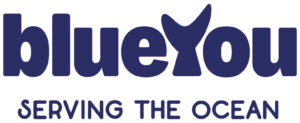Kalimantan Mangrove Shrimp Project
Project Information
Shrimp farming provides an essential source of income for many rural coastal communities in Indonesia. However, decades of unsustainable practices have caused extensive mangrove loss and ecosystem degradation. The removal of mangroves has increased communities’ vulnerability to climate change, coastal erosion, and water pollution, while also reducing farmers’ productivity and income as ponds gradually lose their natural ecological balance.
This project seeks to reverse these trends by reintroducing mangroves into extensive traditional shrimp ponds through an Integrated Mangrove Aquaculture (IMA) approach that restores natural productivity and ecosystem health. By combining reforestation with improved farming practices, the initiative creates economic incentives for farmers to protect and maintain mangroves. The result is a regenerative model that strengthens livelihoods, enhances ecosystem services, and builds long-term resilience for both people and nature.
Project Achievements
1. Expanded Farmer Outreach and Increased Productivity:
The program successfully engaged 21 participating farmers, all of whom have been trained in best management practices under the IMA approach. These farmers have applied improved techniques that have led to higher productivity and better pond conditions. The initiative continues to demonstrate that restoring mangroves within ponds directly supports both ecological recovery and improved farming performance.
2. Developed the SOP for Polyculture in IMA:
The Standard Operating Procedure (SOP) for polyculture in IMA has been finalized and is in the process of being made publicly available for broader adoption. Its objective is to provide accessible, practical guidance for any farmer interested in applying sustainable practices in their ponds. The SOP was validated through a focus group discussion held in one of the program villages with 16 participating farmers. Feedback confirmed that the document is clear, practical, and well adapted to local farming realities, ensuring its relevance and usefulness beyond the current project area.
3. Strengthened Branding and Marketing:
A new promotional video for Selva Shrimp Indonesia has been produced in both short and long formats and published online. The video effectively highlights the benefits of IMA and the strong participation of local farmers. It serves as a powerful communication tool to strengthen program visibility, raise awareness of the program’s impact, and engage partners and buyers in the initiative.

